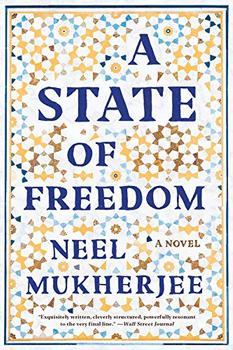Reading Guide Questions

Please be aware that this discussion guide will contain spoilers!
- One of the epigraphs for this novel comes from V.S. Naipaul's A Bend in the River: "After all, we make ourselves according to the ideas we have of our possibilities." How does Mukherjee's novel confirm this idea?
- Why do you think Mukherjee begins the novel with the story of an Indian father and his six-year-old American-born son - a relationship that shines a light on what it means to be "a tourist in one's own country"? Has the father lost a part of himself - the Indian part - by living in another country? Do you think this is why, in the opening paragraph of the novel, he "[breaks] down and [weeps] for his son"?
- Section I has a nightmarish quality. What accounts for this?
- What was your perception of the narrator in Section II? He is Indian-born, but he's also a Western-educated liberal living in London and writing a book. Why is he unsettled by his parents' lifestyle? By befriending "the help" does he betray his mother and father? What are the implications of his interest in the servants?
- The narrator in Section II feels a particular connection with Renu, the cook. What brings them together? What do they offer each other?
- Renu is dismissed for "behaving very badly." The narrator is stunned. Mukherjee seems to be saying something here about our limited capacity to really know and empathize with one another. What prevents the narrator from truly knowing Renu? Were you surprised by Renu's behavior?
- How does Lakshman seem to feel about Raju in the beginning of Section III? How does his relationship with Raju change throughout this section of the novel? Does Lakshman's "state of freedom" seem to change as well?
- When Salim pierces the bear's nose with rope, he counsels Lakshman not to worry about the animal's pain. "They heal quickly, they're strong," he says. "It's we, humans, who are weak." In what ways does this section support this claim?
- Salim urges Lakshman to select a name for the bear, at which point it becomes clear that Raju is Lakshman's property, under his control. Does Mukherjee suggest something here about the moral complexities or consequences of taking control of another being's life? How do Lakshman's actions throughout this section reflect his sense of responsibility to the bear?
- We see Milly, who starts working at only eight years old, in three different households. What kind of mental and emotional abuse does she experience in each setting? What are the implications?
- Before Milly leaves for her third household appointment, Sabina tries to comfort her: "No need to be afraid," she says. "You're going to a better life. You'll be able to send money back home regularly, quite a lot of money." But once again Milly encounters horrific conditions; she's not allowed to go outside. What is Mukherjee saying here about violence and despair in the class system? Are we warned against striving for a better life?
- Milly finally makes her escape from the Vachanis in a cupboard that Mukherjee compares to a coffin. Describing how Milly has put her trust in Binay and hidden in this locked cupboard, Mukherjee writes, "She had put her trust in one man, a man she didn't know at all, with whom she had only had a number of phone calls." Is there any reason Milly chooses to trust Binay?
- Milly is finally set free when "all she wanted was the security of being fixed to one place, the safety and comfort of not being alone." Explore how freedom for Milly might interfere with her sense of security and/or ability to form attachments. How might this help to explain the novel's title?
- Why does Mukherjee end the novel with the brief, bleak story of a dying man? What is he saying about human dignity in the face of violence and oppression? In what way does this man's story extend the novel's scope into a critique of contemporary India?
- Explore the theme of freedom throughout the novel. Who's free and who's enslaved?
- How are the characters in this novel responsible for their own states of freedom?
How would you characterize this novel's structure? Discuss the literary devices used, such as the shift to first-person narration in Section II, the chapter format in Section IV, and the unbroken narration in Section V. What makes each section unique? How do the sections link together?
- All the characters in A State of Freedom want better lives, but they're seldom rewarded for their striving. What is Mukherjee saying here about the lives of the less fortunate? In what sense is the novel about the costs of freedom and the limits of human resilience?
Unless otherwise stated, this discussion guide is reprinted with the permission of W.W. Norton & Company.
Any page references refer to a USA edition of the book, usually the trade paperback version, and may vary in other editions.

 Book Reviewed by:
Book Reviewed by:





